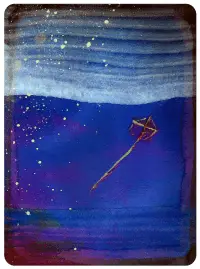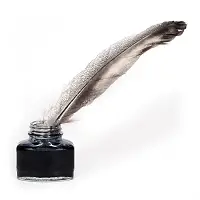Healing Powers of Light and Addiction
by Zena D.
(Michigan, USA)

LIGHT
The healing powers of light date back to early human existence. The rays from the sun are depicted on cave walls from prehistoric caveman drawings. And the sun is spoken about with reverence throughout many civilizations. Various ancient civilizations believed that the sun rays of light that passed through crystals offered special healing powers. In the present day, rehabs in Illinois and worldwide may be able to learn from our early ancestors. Addiction is a disease that many people wrestle with day to day. It comes in many forms, from compulsive internet usage, to even more destructive habits like drug abuse. But scientists are on the cusp of something huge in the realm of addiction.
Neuroscientists’ research on optogenetics is opening the door for new possibilities for addiction treatments. Science and medical communities have been searching for ways to address how to manipulate the brain’s neurons. The brain neurons within the prefrontal cortex and reward circuits are responsible for addiction behavior. Advanced research has discovered that laser lights can modify the actions of these neutrons in mice. Scientists are continuing their research studies in this area by firing laser lights on specific neutrons believed to cause the compulsive behaviors and cravings associated with addictive substances. Rehabs in Illinois, otherwise known as the ''binge drinking belt' of the Midwest, could find the use of optogenetics to help the increasing cases of alcoholism in their state. The use of optogenetics would mostly resemble transcranial magnetic stimulation (TMS) instead of using invasive lasers. TMS has been proven successful for treating depression through the process of using magnetic energy outside of the human scalp. Scientists are hoping to find a safe level of light that can penetrate to the brain’s region and control behavior in addicts.
There are others who believe that light therapy can be beneficial for someone struggling with an addiction. It is very common for addicts to have accompanying mental health conditions. Depression, severe anxiety, seasonal effective disorder, post traumatic stress disorder, bipolar-ism, insomnia, and schizophrenia are the main psychiatric disorders associated with people with an addiction. Addicts also report having sleeping difficulties. It has been proven that sunlight boosts the brain’s neurotransmitter serotonin, which is cited as the feel-good chemical in the brain.
When sunlight intake is decreased, due to staying indoors or weather changes, this can alter the healthy amount of serotonin. Sun exposure elevates mood, provides vitamin D and better sleep. A good way to counteract this is to practice Feng Shui. Feng Shui incorporates the arrangement of living spaces that allow the proper intake of natural and artificial light. Additionally, there are artificial light lamps that mimic the qualities of the sun. But there is nothing better than the real thing.
Basic ingredients in natural sources can help us to live better, healthier lives, whether it's using the sun’s rays that rises and sets on Earth or the newest invention from our acclaimed scientists, addiction can be healed in a variety of ways, whether natural or scientific—and as always, a combination of the two is best.
Resources:
http://www.nature.com/news/laser-used-to-control-mouse-s-brain-and-speed-up-milkshake-consumption-1.20995
http://www.nature.com/news/2010/100505/full/465026a.html
http://www.zmescience.com/science/physics/artificial-light-like-natural-light-0654654/
http://www.health.harvard.edu/family-health-guide/benefits-of-moderate-sun-exposure
http://sunfriend.com/blogs/news/48281409-15-reasons-why-the-sun-is-good-for-you
http://www.medicaldaily.com/sun-exposure-vitamin-d-and-other-health-benefits-sunlight-246487
http://www.healthline.com/health/depression/benefits-sunlight#Overview1
http://www.health.harvard.edu/mind-and-mood/the_addicted_brain
https://www.drugabuse.gov/publications/drugs-brains-behavior-science-addiction/drugs-brain
http://www.chicagotribune.com/lifestyles/health/sc-alcohol-abuse-health-0330-20160325-story.ht






